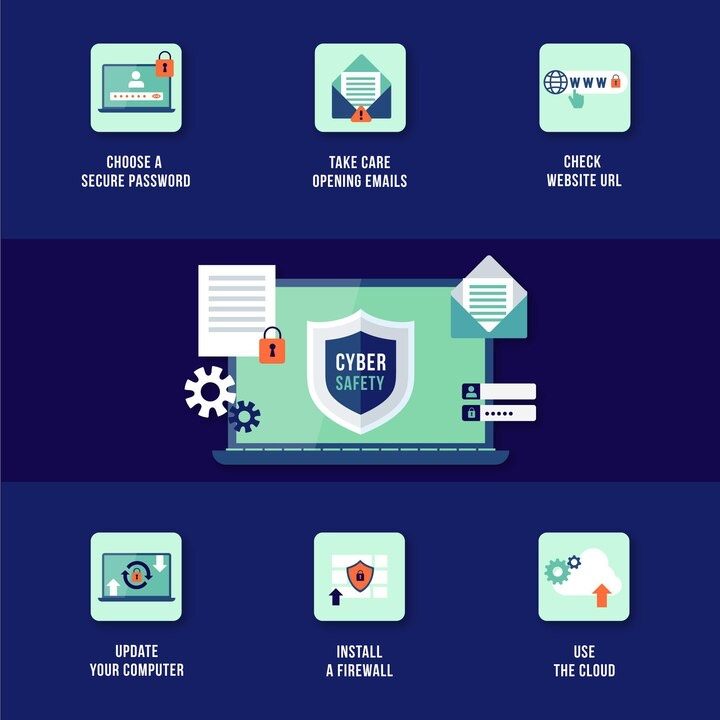Cybersecurity is essential wherever you work. These days malicious activities are surging, causing risks to the important data every company or person owns. It is essential to take security measures to protect data and networks from cyber threats. Companies should invest in cybersecurity solutions such as firewalls, encryption, and anti-malware software, to reduce the risk of data breaches. Individuals should also practice good online security habits, such as using strong passwords, not clicking on suspicious links, and avoiding public Wi-Fi.
In the realm of cybersecurity, two vital roles that stand out are the “Red Team” and the “Blue Team.” While both teams work toward the common goal of protecting an organization’s digital assets, they each have different responsibilities and job opportunities. Before moving ahead with what job opportunities are available in both teams, it is advisable to understand the meaning and inner workings of both teams. Let’s delve deeper into what is considered “red” and “blue” teams and how they are different from each other.
All about Red Team
The Red Team, often referred to as the offensive or adversary team, is responsible for conducting simulated real-world attacks on an organization’s systems and infrastructure. Their main objective is to identify vulnerabilities and weaknesses within the system, network, or application being tested. Red Team professionals possess extensive knowledge of exploitation tactics, techniques, and procedures (TTPs).
Job Opportunities of the Red Team

Pentester / Ethical Hacker:
They perform targeted attacks to identify vulnerabilities, exploit them, and provide recommendations for remediation. They typically work with organizations to help them secure their networks and systems. They also work to detect and mitigate threats, as well as to provide security awareness training. Finally, they often perform penetration tests to evaluate the security of an organization’s systems.
Security Analyst:
They analyze the organization’s security posture, develop attack strategies, and execute advanced persistent threat (APT) simulations. They also use security tools to identify potential vulnerabilities, design security policies and procedures, and monitor the organization’s networks for suspicious activity. They develop security incident response plans and provide security training to employees.
Threat Intelligence Analyst:
They gather intelligence on emerging threats and adversaries and use this knowledge to improve defensive capabilities.
All about Blue Team
The Blue Team represents the defense side of cybersecurity. Blue Team professionals play a crucial role in incident detection, response, and prevention. Blue Team professionals use defensive tactics to detect the risks and respond with a plan to the attackers. To ensure the security of a network, this team creates and maintains the policies and systems with all the latest updates.
Job Opportunities of Blue Team

Security Analyst:
They employ various defensive techniques to identify and analyze potential threats, investigate incidents, and implement security measures.
Security Engineer:
They design and implement security solutions, such as firewalls, intrusion detection systems (IDS), and security information and event management (SIEM) systems.
Security Operations Center (SOC) Analyst:
They monitor and respond to security alerts, analyze log files, and conduct incident response activities. They also identify and mitigate risks, investigate and report on suspicious activities, and provide technical support to the SOC team. Additionally, they maintain security policies, procedures, and standards.
Network Security Engineer:
They ensure the security of the organization’s network infrastructure, including routers, switches, and wireless access points. They monitor network traffic for suspicious activity and take appropriate action, install and fortify firewalls, and set up security patches. They also help troubleshoot network issues and provide technical support to other users.
Incident Response Specialists:
They respond to incidents by investigating and containing breaches, identifying the root cause, and implementing mitigation measures. They also provide training and awareness to employees, create and maintain incident response plans, and lead post-incident reviews. Additionally, they document the incident and report the results to the necessary stakeholders.
Final Thoughts

Selecting the right career is a big decision and choosing the right school is also a major concern these days. Opting for a cybersecurity program requires you to understand certain components so that you get an idea of what the course will cover. It is important to research the program thoroughly and ask questions to your admissions advisor before you decide to enroll.
The online cybersecurity diploma program at ABM College is a high demand course that covers various components necessary to become a cybersecurity specialist. Since cybersecurity is one of the more advanced technology fields to pursue, it is also important to compare program options to decide which one is best for you.
Are you a Red or a Blue? After graduation from the cybersecurity program you’ll likely have a clear idea of which team you want to join. There is even a Purple team in some organizations which combines the techniques of Red and Blue teams to help achieve a common goal.
About The Author

Social Media Specialist & Content Writer, ABM College
Navneet Arora is an experienced social media strategist and SEO-focused content writer specializing in education, career development, and digital marketing. She holds a Master’s Degree in Journalism & Mass Communication and has over 8 years of hands-on experience crafting high-performing content for blogs, websites, and digital platforms.
At ABM College in Calgary, Alberta, Navneet develops engaging, research-driven articles that help students, professionals, and career changers navigate today’s job market. Her work has been published on leading Indian national news portals and recognized for driving measurable traffic growth.
Connect with Navneet on LinkedIn or read more of her work on the ABM College Blog.
